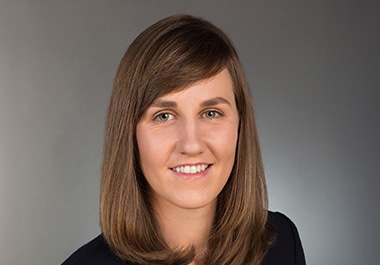Advancing Sarcoma Research Through Innovative Liquid Biopsy Testing
Funding for research on rare cancers, such as sarcomas, is often limited, creating an additional challenge for early career investigators in this field to build a track record for a successful career. Grant funding opportunities like the AACR-QuadW Foundation Sarcoma Research Fellowship in Memory of Willie Tichenor play a key role in supporting early career investigators to combat this challenge. Take it from Joanna Przybyl, PhD, who was awarded this fellowship in 2016: “I received this grant during the third year of my postdoctoral studies. Overall, very few grants are available specifically for postdoctoral researchers in sarcoma.”

Dr. Przybyl began working on sarcoma research at the beginning of her doctoral studies. During this time, her mentors provided insight on the challenges that sarcoma patients faced. “I was inspired by my mentors, who diagnosed and treated sarcoma patients. I was able to learn from my mentors the specific clinical challenges that could be resolved through research, which fueled my drive to make discoveries with tangible clinical impact,” Dr. Przybyl shared.
Indeed, after completing her doctoral studies, Dr. Przybyl continued to study sarcomas during her postdoctoral fellowship at Stanford University. During this time, her project, “Monitoring treatment response in leiomyosarcoma using circulating tumor DNA (ctDNA),” was funded through the AACR-QuadW Foundation fellowship program. Motivated by her desire to make impactful discoveries for patient care, Dr. Przybyl’s work focused on using liquid biopsy testing to identify dynamic biomarkers for measuring tumor burden in leiomyosarcoma patients. “We were the first to report that ctDNA levels correlated with treatment response in leiomyosarcoma patients, providing a real-time indicator of therapeutic efficacy,” Dr. Przybyl said. She further explained that “we also showed that the molecular profile of ctDNA mirrored tumor heterogeneity, which is a distinct advantage over traditional tissue biopsy.”
This work was foundational in shaping Dr. Przybyl’s independent research program, which she now runs as an assistant professor at McGill University. Dr. Przybyl’s liquid biopsy research was met with significant interest, ranging from invitations to speak at numerous scientific conferences and patient meetings to serving an advisory role on liquid biopsy projects as well as new collaborations. “Importantly, the approaches used to study specimens from patients with leiomyosarcoma can be adapted to study other types of sarcomas. In my research group at McGill, we expanded the scope of liquid biopsy studies to analyze specimens from patients with uterine leiomyoma, osteosarcoma, and different types of liposarcoma. This broader focus allows us to extend the potential impact of our research, benefiting a wider range of sarcoma patients,” Dr. Przybyl stated.

While Dr. Przybyl learned many of the clinical challenges sarcoma patients faced from her mentors in the beginning of her research, she now engages with the patient community herself, which fuels her drive to make discoveries. She shared that her work is “deeply motivated by interactions with sarcoma patient advocacy groups. Meeting with patients and survivors offers valuable insights into the challenges they face regarding symptoms, treatment side effects, and quality of life that may not be fully represented in scientific literature. Understanding how my laboratory research can genuinely benefit patients is a fundamental aspect of my motivation to pursue sarcoma research.”
Reflecting on her visions for the future of sarcoma research, Dr. Przybyl noted that “we need to make discoveries in the field to improve the accuracy of diagnosis and choice of therapy and to uncover new therapeutic strategies.” Dr. Przybyl emphasized the potential of liquid biopsies to achieve these goals because they “enable detection of clinically useful prognostic and predictive biomarkers through minimally invasive, blood-based tests. This method ultimately aims to support better informed treatment decisions, leading to improved outcomes and quality of life for sarcoma patients.”
The AACR is currently accepting applications for the AACR-QuadW Foundation Sarcoma Research Fellowship in Memory of Willie Tichenor. The deadline to apply is January 9, 2025 at 1 p.m. ET. Any inquiries regarding this funding opportunity may be directed to [email protected].